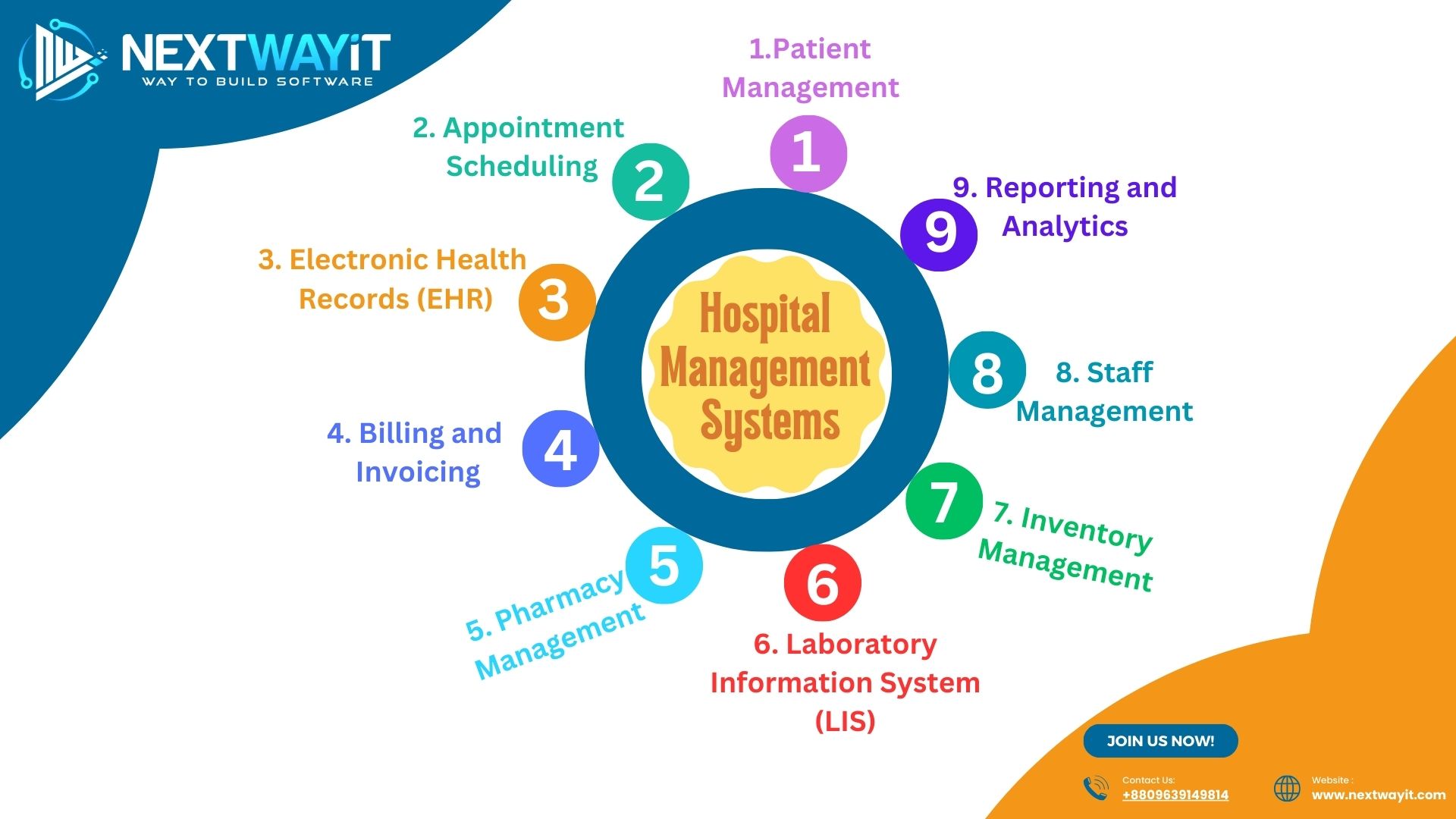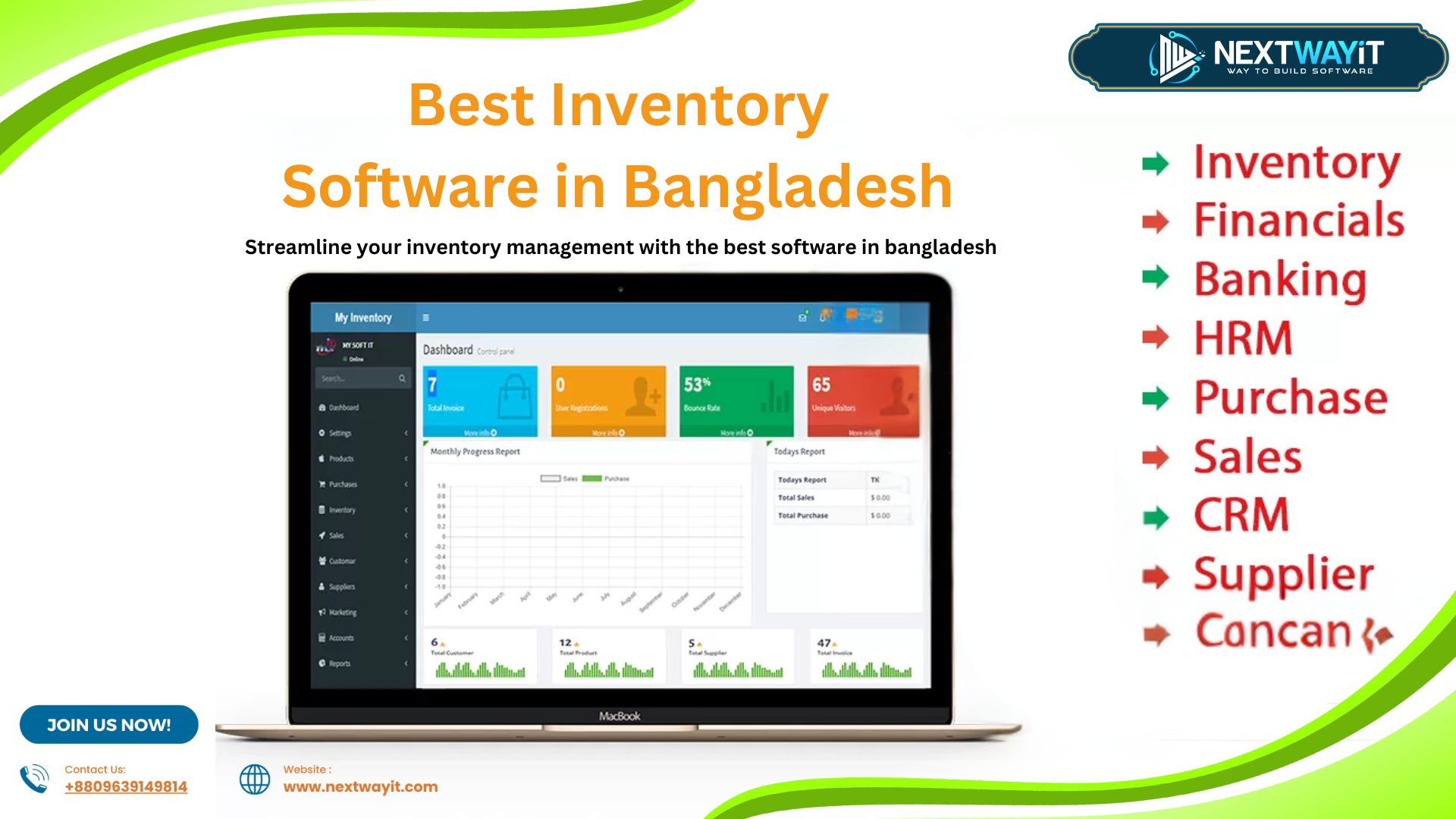
Hospital Management Systems
In this article, we’ll explore about Hospital Management Systems. In the fast-paced world of healthcare, efficiency and accuracy are paramount. Hospital Management Systems (HMS) have emerged as the cornerstone for modern healthcare facilities, streamlining administrative tasks, enhancing patient care, and improving overall operational effectiveness. In this comprehensive guide, we delve into the intricacies of Hospital Management Systems, exploring their functionalities, benefits, implementation challenges, and future prospects.
Understanding Hospital Management Systems:
Hospital Management Systems, also known as Hospital Information Systems (HIS) or Healthcare Information Systems (HCIS), are integrated software solutions designed to manage various aspects of hospital operations. From patient registration to billing and inventory management, HMS encompasses a wide range of functionalities tailored to meet the unique needs of healthcare providers.
Key Components of Hospital Management Systems:
A robust HMS typically comprises several modules, each serving a specific function within the healthcare ecosystem. These modules may include:
- Patient Management
- Appointment Scheduling
- Electronic Health Records (EHR)
- Billing and Invoicing
- Pharmacy Management
- Laboratory Information System (LIS)
- Inventory Management
- Staff Management
- Reporting and Analytics
Benefits of Implementing a Hospital Management System:
The adoption of an efficient HMS offers numerous benefits to healthcare organizations, including:
- Enhanced Operational Efficiency: Streamlined workflows and automated processes reduce administrative burden and improve staff productivity.
- Improved Patient Care: Centralized patient records enable healthcare providers to deliver personalized and timely care, leading to better health outcomes.
- Cost Savings: Optimized resource utilization, reduced paperwork, and minimized billing errors contribute to cost savings for hospitals and patients alike.
- Regulatory Compliance: Built-in features ensure adherence to healthcare regulations and standards, mitigating compliance risks.
- Data-driven Decision Making: Advanced analytics capabilities provide insights into operational performance, enabling informed decision-making and strategic planning.
Challenges in HMS Implementation:
While the benefits of HMS are substantial, implementing such a system poses several challenges, including:
- Resistance to Change: Healthcare professionals may resist transitioning from traditional paper-based systems to digital platforms, necessitating comprehensive training and change management strategies.
- Integration Complexity: Integrating HMS with existing legacy systems and third-party applications can be complex and time-consuming, requiring careful planning and technical expertise.
- Data Security Concerns: Safeguarding sensitive patient information against cybersecurity threats and data breaches is a critical priority, necessitating robust security measures and compliance with privacy regulations.
- Scalability: As healthcare organizations grow and evolve, scalability becomes essential to accommodate increasing patient volumes and expanding service offerings.
Future Trends in Hospital Management Systems:
The future of HMS is shaped by emerging technologies and evolving healthcare trends, including:
- Artificial Intelligence (AI) and Machine Learning: AI-powered algorithms can analyze vast amounts of healthcare data to identify patterns, predict patient outcomes, and optimize resource allocation.
- Telehealth Integration: The rise of telehealth services necessitates seamless integration with HMS to facilitate remote consultations, virtual monitoring, and electronic prescriptions.
- Blockchain Technology: Blockchain offers secure and transparent storage of medical records, enabling interoperability among healthcare providers while ensuring data integrity and patient privacy.
- Internet of Medical Things (IoMT): Connected medical devices and sensors collect real-time health data, integrating seamlessly with HMS to support proactive patient care and remote monitoring.
Selecting the Right Hospital Management System:
Choosing the right HMS requires careful consideration of various factors, including:
- Scalability and Customization: The system should be scalable to accommodate future growth and customizable to meet the specific needs of the healthcare facility.
- User-Friendly Interface: Intuitive user interfaces and streamlined workflows enhance user adoption and efficiency.
- Interoperability: Seamless integration with other healthcare systems and interoperability standards ensures data exchange and continuity of care.
- Vendor Support and Training: Adequate vendor support, training, and ongoing maintenance are crucial for successful HMS implementation and long-term usability.
Case Studies: Success Stories of HMS Implementation:
Several healthcare organizations have witnessed transformative outcomes following the implementation of Hospital Management Systems. Case studies highlighting these success stories serve as valuable testimonials to the efficacy of HMS in improving healthcare delivery and organizational performance.
Best Practices for Maximizing HMS Effectiveness:
To maximize the effectiveness of HMS, healthcare providers should adhere to best practices such as:
- Engaging Stakeholders: Involving stakeholders throughout the implementation process fosters buy-in and ensures alignment with organizational goals.
- Continuous Training and Education: Ongoing training programs empower staff to leverage HMS functionalities effectively and stay abreast of updates and best practices.
- Data Quality Assurance: Regular audits and quality assurance measures help maintain data accuracy and integrity, enhancing the reliability of clinical decision-making.
- Feedback and Iteration: Soliciting feedback from users and stakeholders enables continuous improvement and refinement of the HMS to better meet evolving needs and challenges.
Conclusion:
In conclusion, Hospital Management Systems play a pivotal role in revolutionizing healthcare delivery by enhancing efficiency, improving patient care, and driving operational excellence. As technology continues to advance and healthcare evolves, the adoption and optimization of HMS will remain central to achieving the overarching goals of modern healthcare – delivering high-quality, accessible, and patient-centered care.



